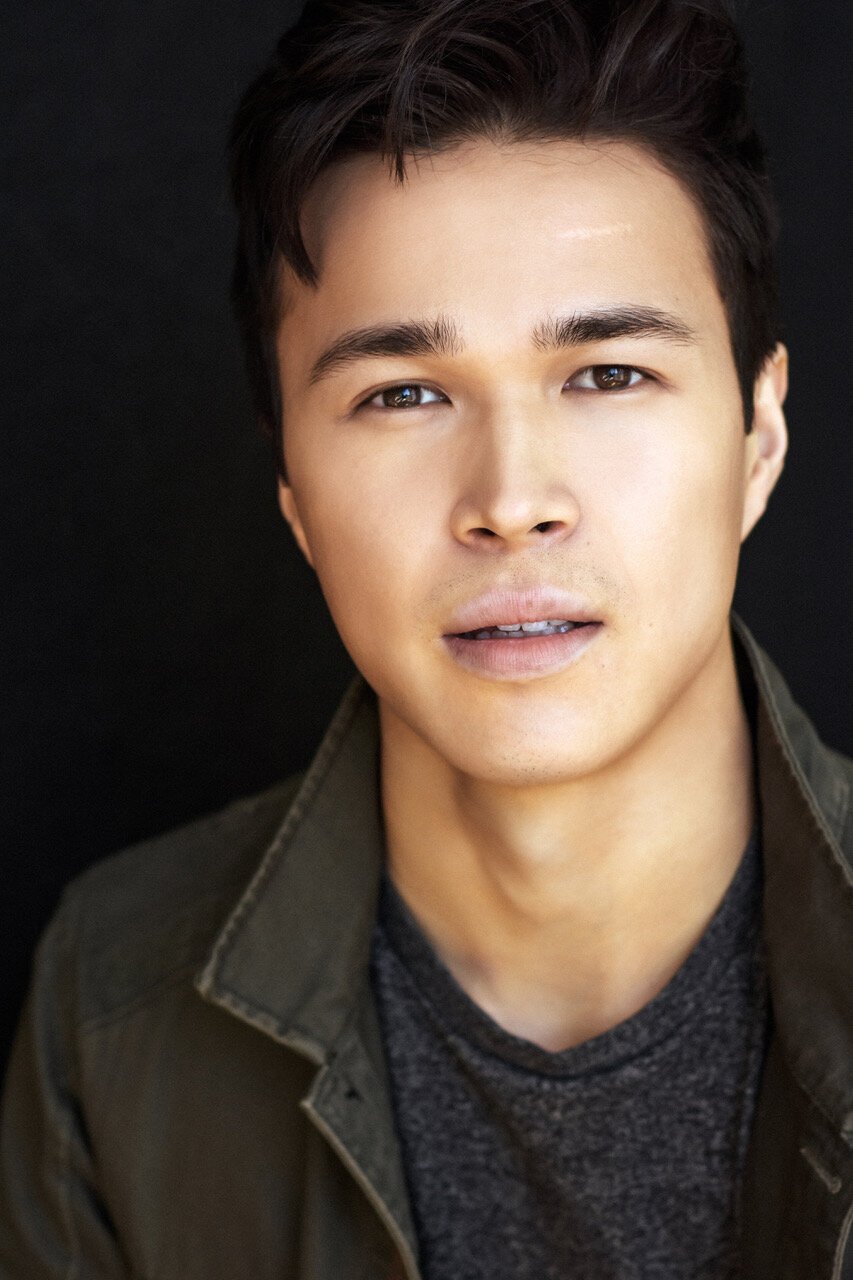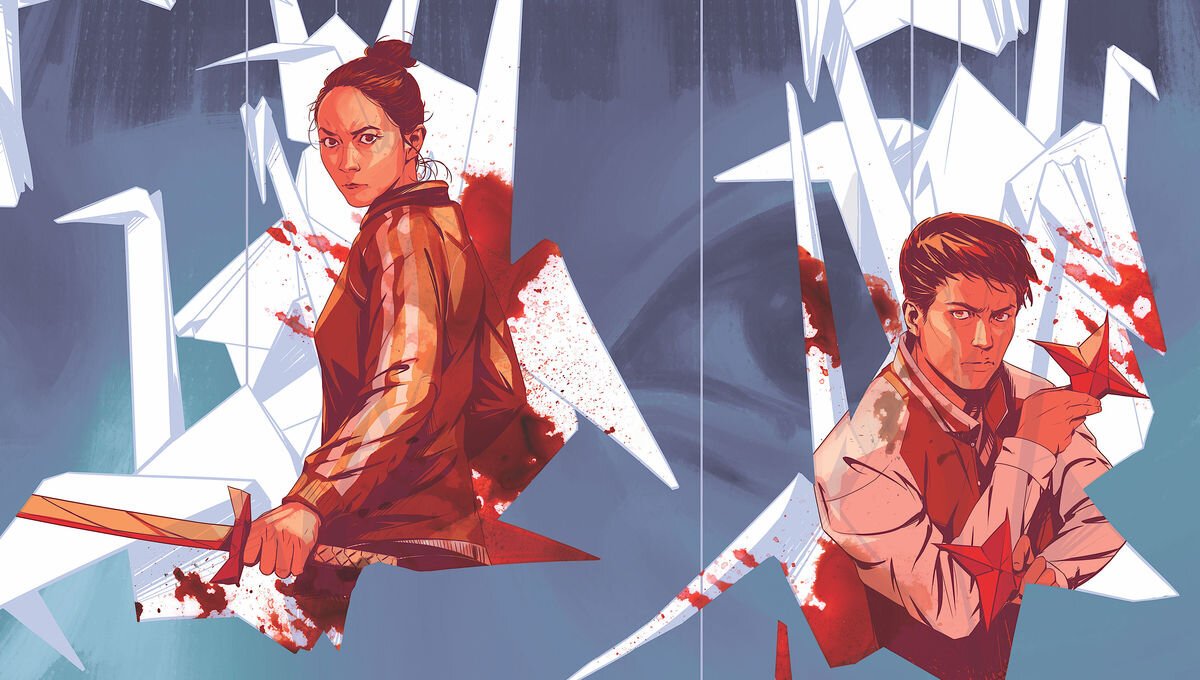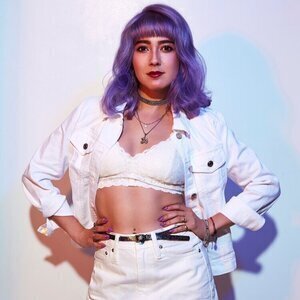Interview: Kai Bradbury
Hapa Mag - MAY 13, 2020
By Alex Chester
I don’t know about you, but I am in desperate need of something new and different to watch. I’ve been quarantining for roughly two months now, and I’ve watched just about everything in my Netflix and Hulu queues.
If you know me you know that I’m not great at keeping up with pop culture, so it’s no surprise I’m way late to the game when it comes to up-and-coming actor Kai Bradbury. He plays Gerit on Freeform’s Motherland: Fort Salem. If you don’t have Freeform, no fear, Motherland can also be found on Hulu, which is great news for me, so I can catch up.
Kai has been seen on The Man in the High Castle, Supernatural, Altered Carbon, The Terror: Infamy, and he starred in Warigami, which aired on CW Seed as a special feature film. As you can see this guy has already had quite the career.
Interview
What makes you Hapa? And do you identify with this word?
Oooh, good question. What makes me Hapa? I guess by definition I’m half-Scottish and half-Japanese and those traditions and cultures and identities are very present in my life. I do identify with the word Hapa but I also [use] all the words interchangeably; mixed-race or biracial.
Since we are in the middle of a pandemic, how are you doing? Has COVID-19 affected you at all?
I’m doing well. It’s been very difficult in, you know, the few times I go outside to grocery shop or go for a walk. It’s been strange seeing people act differently, but personally, I am so grateful that the pandemic has not had any health effects on anyone in my family, myself included, but it’s been difficult spending a lot of time alone at home. Seeing some people with family, quarantined together with friends or roommates also can be hard, but I’m passing a lot of time cooking and calling family. It’s been good.
Where did you grow up, and what was it like for you growing up as Japanese and Scottish?
I was born and raised in Vancouver, British Columbia. Both my parents are immigrants which is why I think their culture lies so heavily in me, because they brought them over. Growing up Hapa, I don’t think my race weighed as heavily as it did once I became an actor. Oftentimes when you are mixed-race you don’t necessarily think about it all the time. I remember being just one of the kids. What you play on TV certainly is limited by how you look, so it was never something at the forefront of my life until I became an actor.
When did you decide you wanted to be an actor? What have been some of your favorite roles? And possibly obstacles?
At the age of 14, I joined my high school’s improv team and met my entire core group of friends that carried me through the rest of those years. They got me hooked doing plays and musicals and then I just carried on with theatre into acting school where I trained in singing, dancing, and acting. [I] signed with an agency afterward and kind of fell into film and TV primarily after that. My favorite, no not my favorite role... I would love to talk about my role on The Terror: Infamy.
Yes, please. As a Japanese American myself I would love to hear more about this.
There’s so much. The stars really aligned with that project— for it to be shooting in Vancouver of course was ideal. As soon as I heard about that project I contacted my agent and I said, “I need to be part of this.” I actually lived about a 10-minute drive away from Hastings Park, in Vancouver, which is where Japanese Canadians were held prior to the transport of the internment— they were held in those horse stables. It was something I passed every day. I had the pleasure of playing Nick Okada on the second episode, guest-starring alongside some amazing artists from Japan and the States. We had a very international cast, and of course I had scenes with George Takei, who is legendary. An angel, so hardworking, and just so inspiring to share space and time with.
This role was the first role I’d ever seen on paper that was Hapa or, at the time period would’ve been called “ainoko” which translates to “child in-between.” It’s now a derogatory term, but it was so special to see this role. I’d never seen myself reflected so intensely on paper, not necessarily the kind of character but to be exactly half-caucasian, half-Japanese. Playing my true race was very special. Oftentimes in film I end up telling stories from other Asian cultures. I’ve been cast as Korean or Chinese or Filipino, but I’ve had the great pleasure, and luck, of also getting to play a lot of Japanese roles and getting to share that culture and language as well.
Can you tell the readers a little bit about Warigami?
Of course. Warigami is an action-fantasy-comedy. It aired in Canada as a short-form series, however it was cut together to make one big movie when it was released for the CW. It’s currently available on CBC Gem to stream in Canada or the CW Seed in the States, which is also the CW streaming platform. I got to play this kind of rebellious, fast-talking, homeless kid named Vincent Ohata. He one day stumbles upon his long-lost sister, Wendy, who is played fiercely by Emily Piggford, who is also Hapa and happens to be my exact mix of halves. She’s based out of Toronto at the moment and is half-British, half-Japanese. When I was cast in this show I thought, “Gosh, I wonder who they are going to find to play my twin,” because of how I’m mixed. I present more Asian to a lot of people, so I wondered if they would just find an actress that was full Japanese. When I first met Emily it was like time stopped. It was like I was seeing a reflection, and we bonded immediately just because we have so much in common.
What’s the best part of being mixed-Asian, and do you feel there are challenges because of it? Whether in your career or personal life?
The best part about being mixed-race is the gift of appreciating culture. I always thought it kind of special to be able to experience almost two different lives and also challenging to find identity in this new pairing of worlds. I do love it because it gives me multiple languages to speak and traditions to practice that someone who isn’t mixed wouldn’t necessarily get to be a part of.
Any mixed traditions from your family that are a combination of Japanese and Scottish? Uniquely your family?
One funny thing that Hapas might relate to is that a new language develops, where you speak one language and mix it with another, or half of the conversation from one person is in Japanese and the answers are all in English [and] you start to mix the words up. I also listened to French immersion growing up so I speak French and my stepfamily is Venezuelan so I grew up around four languages. Four languages gets things kinda crazy. In terms of traditions, I mean, they aren’t maybe mixed traditions but, I don’t know a lot of people who own a yukata and a kilt and wear them in the same year. Like I mentioned, I really practice all kinds. We do Robbie Burns Day which is a Scottish poet celebration where I stab haggis with a saber and I’ve been doing that since I was a kid. I was also in Japanese school on Saturdays. It makes for a really unique kind of person when they come from different worlds.
Any words of advice you can pass on to our readers navigating being Hapa?
I think it’s an ever-changing journey. I always joke that someday the world will look like us. There’s so much beauty in who we are, and although identifying as Hapa is a beautiful thing, I think our world is stuck in labeling ourselves, our races, our sexuality, and our genders, so identifying and sharing these things are important. I hope that we could all just end up being us and be loved and celebrated for who we are so let us keep sharing our stories and our love.
Do you have any projects coming up?
Episode 4 of my series, Motherland: Fort Salem, just aired this past Wednesday. We’ve got six more episodes to look forward to every Wednesday on Freeform and Hulu.
End of Interview
Follow Kai on Instagram @kaibury.
Alex Chester is the creator and producer of the theatre company WeSoHapa — a theatre based on diversity and inclusion. She is a New York City based columnist for On Stage Blog and contributing writer for ManhattanDigest.com and HuffPo. She also hosts a podcast with fellow writer Melissa Slaughter, We're Not All Ninjas. Follow her on Twitter/Instagram @AlexFChester if you like food and cats.




